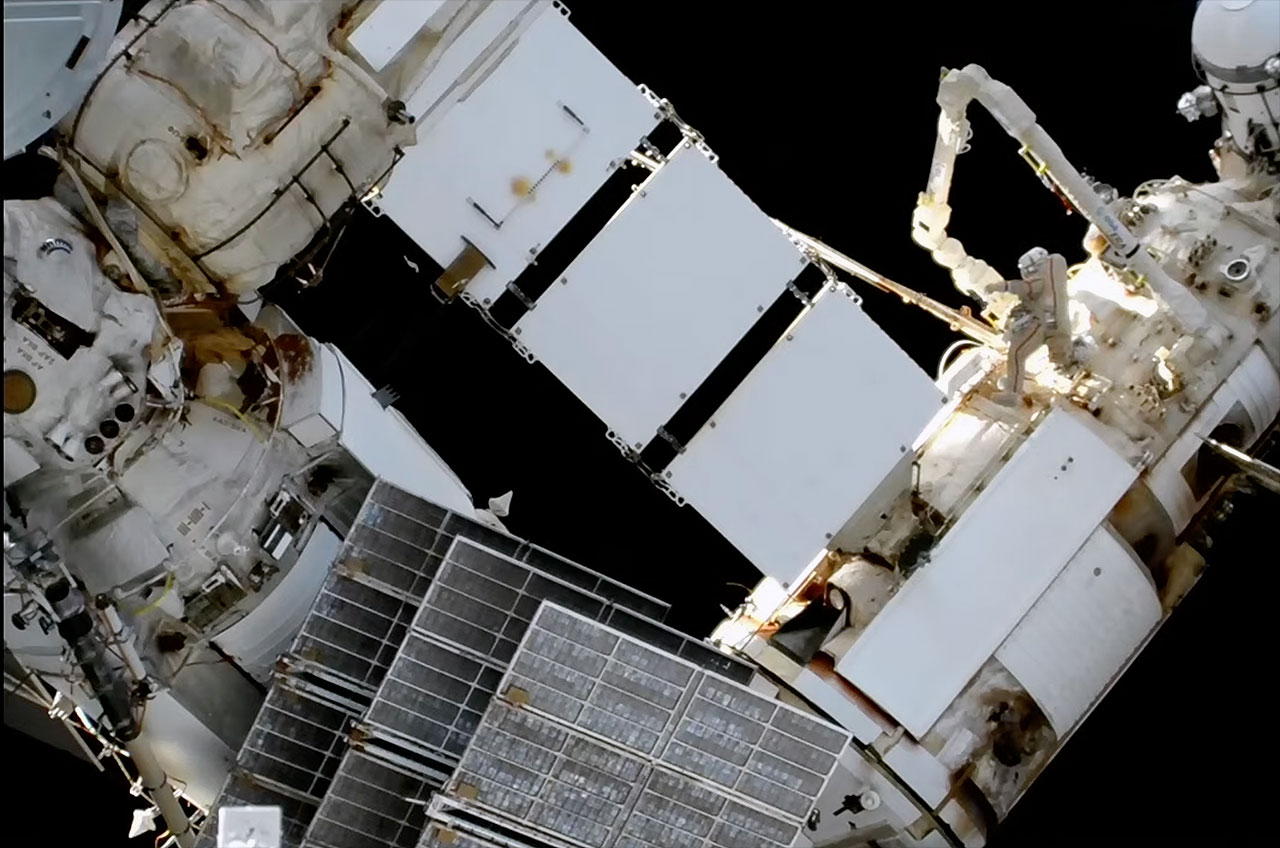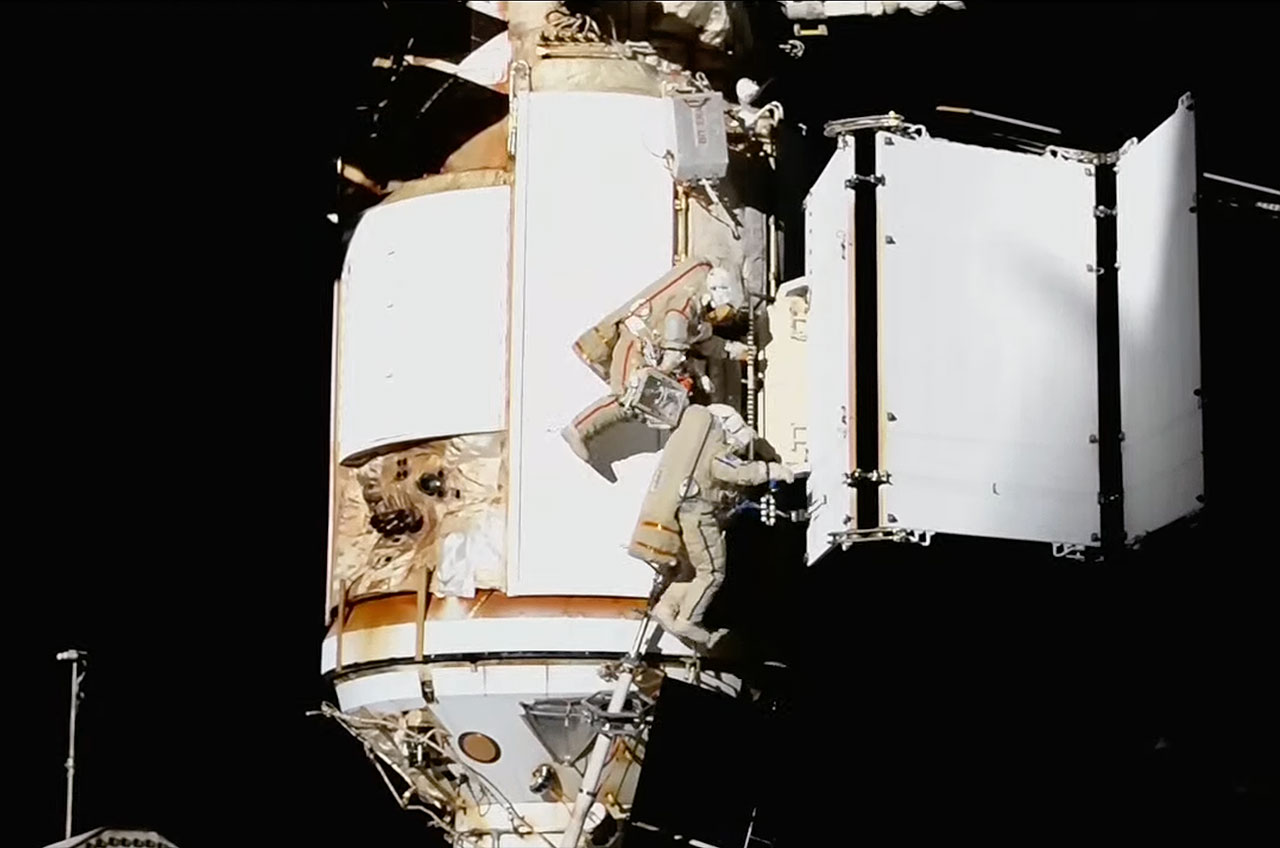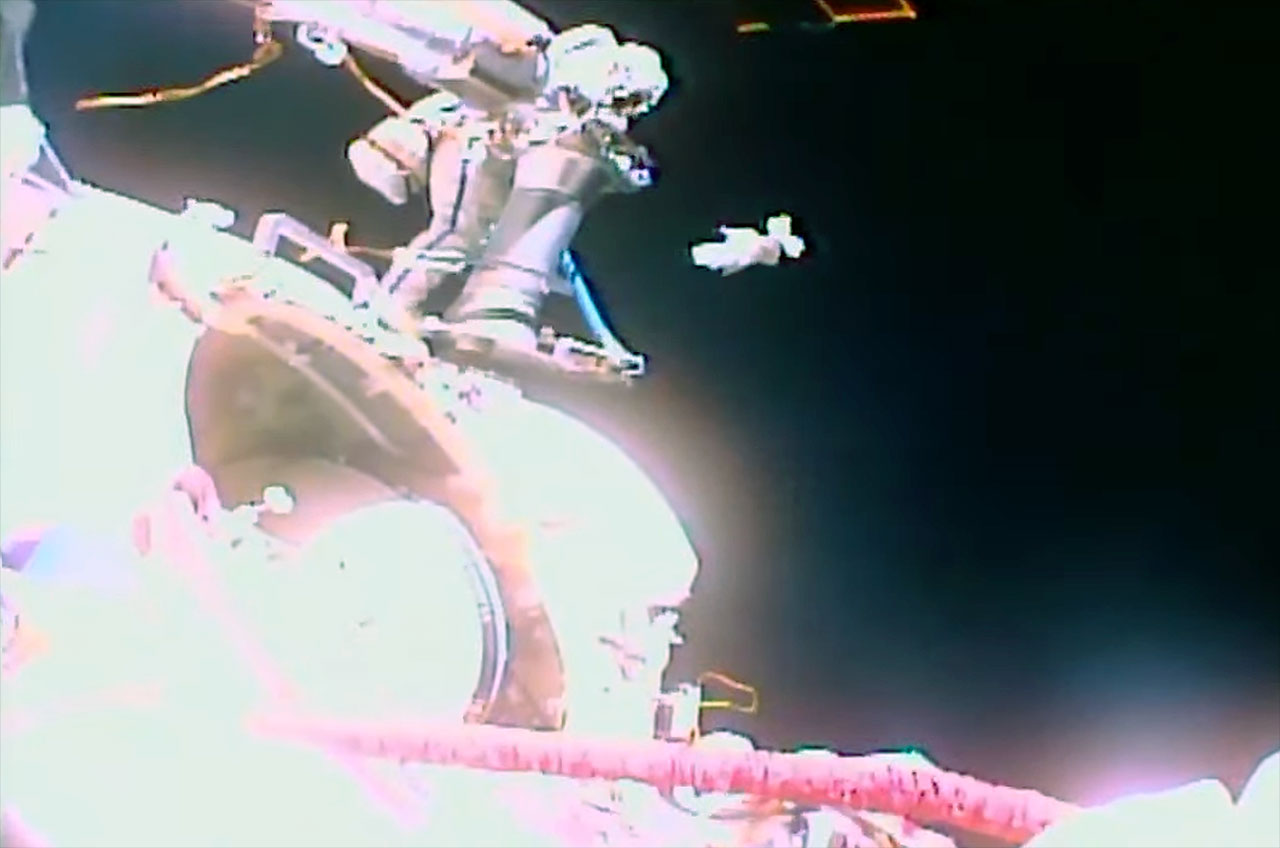Russian cosmonauts move vital radiator for International Space Station in 5-hour spacewalk
Sergey Prokopyev and Dmitry Petelin completed the third in a series of three spacewalks devoted to outfitting a module with equipment launched with another 13 years ago.

Two Russian cosmonauts have completed a spacewalk to activate a radiator that they earlier helped relocate outside of the International Space Station.
Expedition 69 commander Sergey Prokopyev and flight engineer Dmitry Petelin, both with the Russian federal space corporation Roscosmos, successfully deployed the heat exchanger as their primary task during the 5 hour and 14 minute extravehicular activity (EVA) outside the International Space Station (ISS) on Friday (May 12).
The spacewalk was the third and last in a series that focused on outfitting the exterior of the Russian Nauka multipurpose laboratory module with the radiator and an experiment airlock that was launched with the Rassvet mini-research module aboard NASA's space shuttle Atlantis 13 years ago.
Related: International Space Station — Everything you need to know
After opening the airlock hatch on the Poisk module at 11:47 a.m. EDT (1547 GMT) and exiting the station, Prokopyev and Petelin made their way to the Nauka module to remove the remaining restraints holding the radiator closed. As the bolts were loosened, the radiator began to unfold to its full length.
"Radiator is deployed," said Prokopyev a short time later, after using a lever to fully extend the three-panel wing.
With the hardware in place, the two spacewalkers set about opening the first set of valves to begin loading the radiator with coolant fluid, a process that in total was estimated to take about two hours.
Breaking space news, the latest updates on rocket launches, skywatching events and more!
While waiting for the coolant to flow into the radiator, Prokopyev and Petelin installed two gap spanners on the European Robotic Arm (ERA). The manipulator was earlier used to transfer the radiator and airlock from Rassvet to Nauka during spacewalks on April 18 and May 3.
The two cosmonauts also completed a few "get-ahead" tasks for future spacewalks, installing a pair of handrails connecting the Nauka laboratory to the Prichal docking node.
Prokopyev and Petelin then opened a second set of valves to complete the coolant loading for the radiator. With no leaks reported, Russian flight controllers were able to confirm the radiator had been successfully integrated into Nauka's thermal control system.
The spacewalkers then began cleaning up their work area to return inside, having completed all of the tasks set out for them about an hour ahead of what had been planned. After jettisoning towels used to wipe down their spacesuits of errant coolant, Prokopyev and Petelin ended their spacewalk at 5:01 p.m. EDT (2101 GMT).
With Friday's EVA, Prokopyev, now has has spent 42 hours and 16 minutes on six spacewalks. Petelin has now completed four outings, logging 26 hours and 45 minutes outside the station.
The spacewalk was the sixth for the year and 263rd dedicated to assembly and maintenance of the International Space Station.

Robert Pearlman is a space historian, journalist and the founder and editor of collectSPACE.com, a daily news publication and community devoted to space history with a particular focus on how and where space exploration intersects with pop culture. Pearlman is also a contributing writer for Space.com and co-author of "Space Stations: The Art, Science, and Reality of Working in Space” published by Smithsonian Books in 2018.
In 2009, he was inducted into the U.S. Space Camp Hall of Fame in Huntsville, Alabama. In 2021, he was honored by the American Astronautical Society with the Ordway Award for Sustained Excellence in Spaceflight History. In 2023, the National Space Club Florida Committee recognized Pearlman with the Kolcum News and Communications Award for excellence in telling the space story along the Space Coast and throughout the world.


